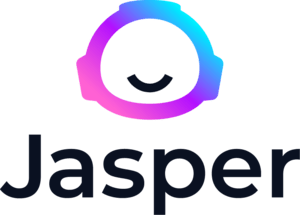Artificial Intelligence Certification Course
- 19k Enrolled Learners
- Weekend
- Live Class
Let’s take a look at how Netflix uses AI in its marketing strategies. Do you know how Netflix suggests shows or movies you might like when you open it? That’s all thanks to AI. It looks at what you’ve watched before, what you’ve liked, and what other people with similar tastes enjoyed, and then suggests stuff it thinks you’ll enjoy.
But Netflix’s use of AI extends beyond show suggestions. The platform also employs AI to strategize its promotional campaigns for new releases. It takes into account factors such as viewership patterns, timing, and social media buzz to effectively spread the word about its latest shows and movies. This data-driven approach ensures that you’re always aware of the most exciting new content on Netflix.
Moreover, Netflix utilizes AI to send out tailored emails or notifications. If you’re a fan of documentaries, they might inform you when a new one is available. If you enjoy comedies, they’ll alert you when a hilarious new show is released. This personalized communication keeps you updated on the content you love, enhancing your Netflix experience.
AI helps Netflix ensure you see the content you’re interested in, whether it’s finding new shows to watch or keeping you informed about what’s trending.
In this Blog on “AI for Marketing,” we are going to cover the following Topics:
AI for marketing refers to the use of artificial intelligence techniques and technologies to improve various aspects of marketing strategies and operations. This includes leveraging AI algorithms to analyze vast amounts of data, automate repetitive tasks, personalize marketing campaigns, and enhance customer experiences.
Let’s consider advertising, for example. AI helps companies figure out who might be interested in their products and then shows ads to those people. It’s not just about bombarding everyone with ;it’s about showing the right ads to the right people at the right time.
But AI does more than just advertise. It also helps companies understand what’s working and what’s not. By looking at data on things like website visits, social media clicks, and online purchases, AI can give companies insights into what their customers like and how they behave.
And it’s not just big companies that can benefit from AI in marketing. Even small businesses can use AI to reach new customers and keep them coming back. Whether it’s sending personalized emails or targeting ads to specific groups of people, AI levels the playing field and helps businesses of all sizes succeed in the digital world.
So, when you see ads that seem to know exactly what you’re interested in or get emails that feel like they were made just for you, chances are AI is behind it all, working its magic to make marketing more personal, more effective, and more engaging.
Here are some concrete examples of how AI is used in marketing:
Companies like Amazon and Netflix use AI algorithms to analyze user behavior and preferences. Then, they recommend products or content personalized to each individual’s interests. This increases engagement and drives sales by showing customers exactly what they’re interested in.
Many businesses use AI-powered chatbots on their websites or social media channels to provide instant customer support. These chatbots can answer common questions, assist with purchases, and even book appointments, improving customer satisfaction and freeing up human agents for more complex tasks.
AI enables marketers to predict future trends and customer behavior by analyzing large datasets. For example, retailers can use predictive analytics to forecast demand for certain products, allowing them to optimize inventory levels and plan marketing campaigns accordingly.
AI tools can analyze user behavior and email engagement metrics to optimize email marketing campaigns. By segmenting audiences, personalizing content, and determining the best send times, AI helps marketers improve open rates, click-through rates, and conversions.
AI-powered visual search technology allows users to search for products using images rather than text. Companies like Pinterest and Google use AI algorithms to analyze images and return visually similar results, helping users discover products they’re interested in.
AI can generate content at scale, reducing the time and resources required for content creation. For example, AI-powered tools can generate blog post outlines, product descriptions, or social media captions based on user input.

For marketers, Grammarly is a great tool for improving product descriptions. We know how important it is to write clear, SEO-friendly descriptions that stand out from the competition.
Grammarly provides Tools such as:


Jasper.ai helps in marketing by creating personalized content. It analyzes customer data to understand preferences and suggests subject lines, body text, and calls to action based on past performance.
Jasper.ai offers essential features such as:
Featured use cases for Jasper.ai include:


AI is transforming the way we approach marketing. Its ability to analyze data, understand consumer behavior, and personalize experiences is reshaping the industry. As businesses continue to use AI tools and techniques, they can expect to see improvements in efficiency, effectiveness, and, ultimately, in their bottom line. While AI offers incredible potential, it’s important to remember that human creativity and insight remain essential in crafting compelling marketing strategies. If you’re curious about what Generative Adversarial Networks or Variational Autoencoders are, you can join our Generative AI course for a detailed explanation of these techniques.
If you’re into marketing and curious about how AI can help, check out Edureka’s Artificial Intelligence (AI) in Marketing Course. You’ll learn how to use AI tools to make marketing easier and improve your business. Discover how to use AI to get useful information and make your marketing campaigns better than your competition’s so you can boost your return on investment (ROI).
 Thank you for registering Join Edureka Meetup community for 100+ Free Webinars each month JOIN MEETUP GROUP
Thank you for registering Join Edureka Meetup community for 100+ Free Webinars each month JOIN MEETUP GROUPedureka.co